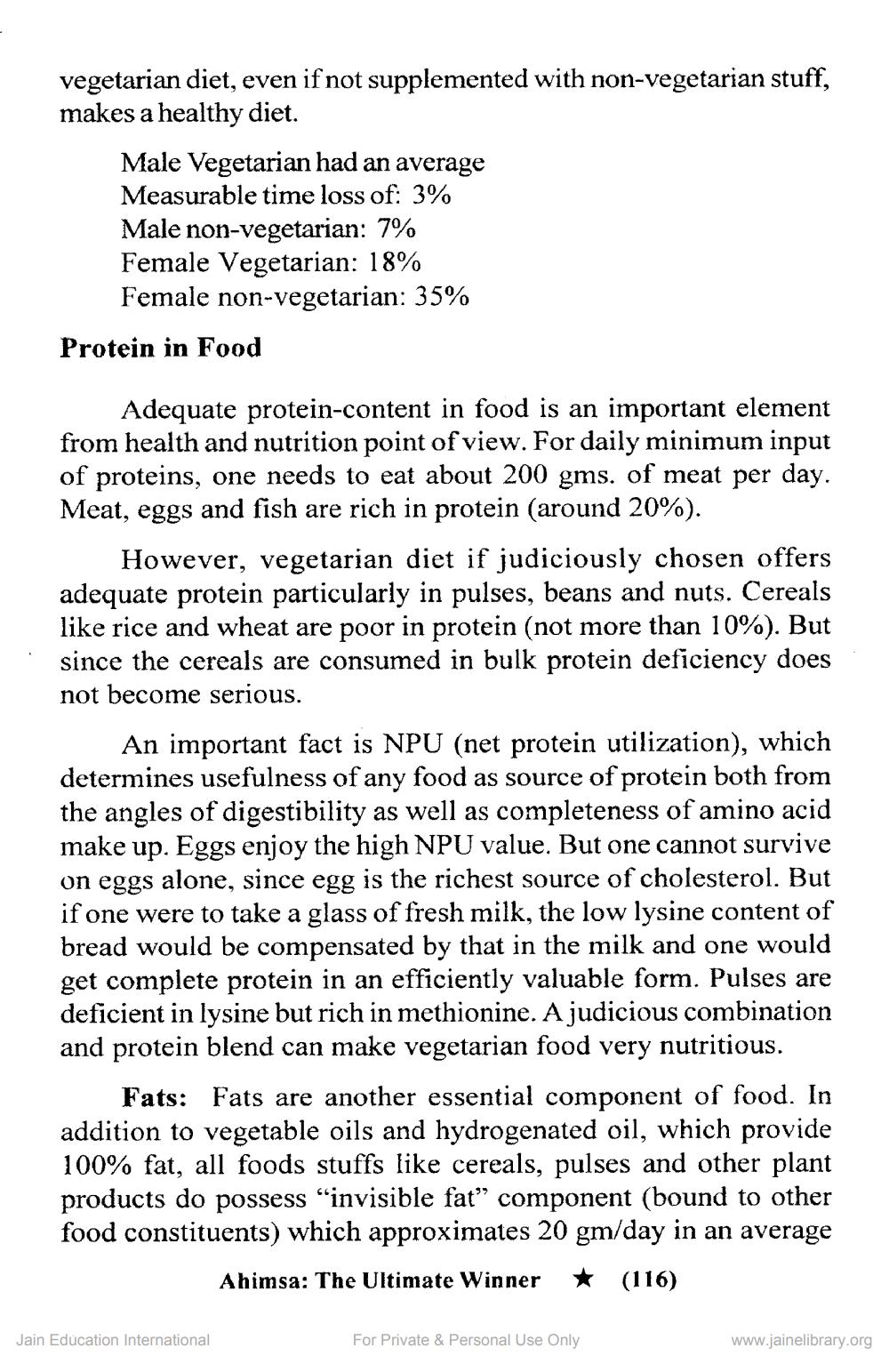________________
vegetarian diet, even if not supplemented with non-vegetarian stuff, makes a healthy diet.
Male Vegetarian had an average Measurable time loss of: 3% Male non-vegetarian: 7% Female Vegetarian: 18% Female non-vegetarian: 35%
Protein in Food
Adequate protein-content in food is an important element from health and nutrition point of view. For daily minimum input of proteins, one needs to eat about 200 gms. of meat per day. Meat, eggs and fish are rich in protein (around 20%).
However, vegetarian diet if judiciously chosen offers adequate protein particularly in pulses, beans and nuts. Cereals like rice and wheat are poor in protein (not more than 10%). But since the cereals are consumed in bulk protein deficiency does not become serious.
An important fact is NPU (net protein utilization), which determines usefulness of any food as source of protein both from the angles of digestibility as well as completeness of amino acid make up. Eggs enjoy the high NPU value. But one cannot survive on eggs alone, since egg is the richest source of cholesterol. But if one were to take a glass of fresh milk, the low lysine content of bread would be compensated by that in the milk and one would get complete protein in an efficiently valuable form. Pulses are deficient in lysine but rich in methionine. A judicious combination and protein blend can make vegetarian food very nutritious.
Fats: Fats are another essential component of food. In addition to vegetable oils and hydrogenated oil, which provide 100% fat, all foods stuffs like cereals, pulses and other plant products do possess "invisible fat" component (bound to other food constituents) which approximates 20 gm/day in an average Ahimsa: The Ultimate Winner ★ (116)
Jain Education International
For Private & Personal Use Only
www.jainelibrary.org




